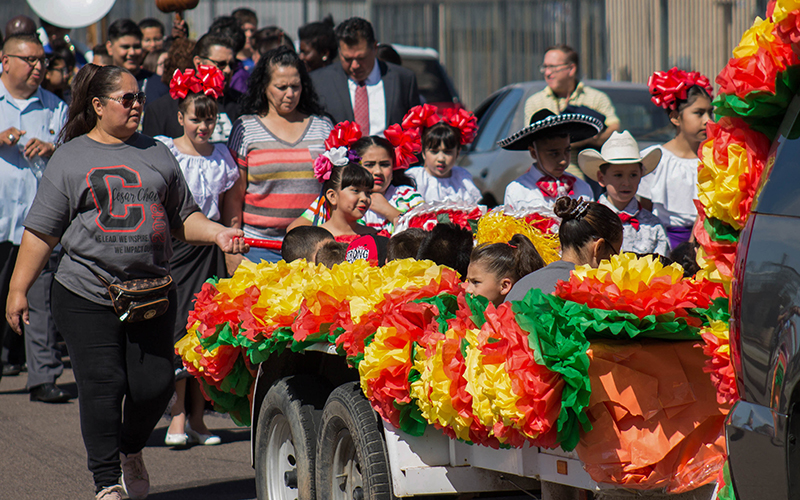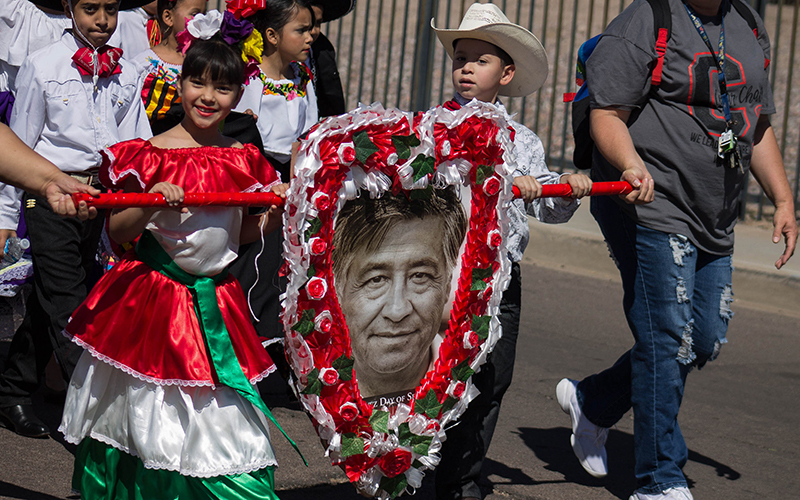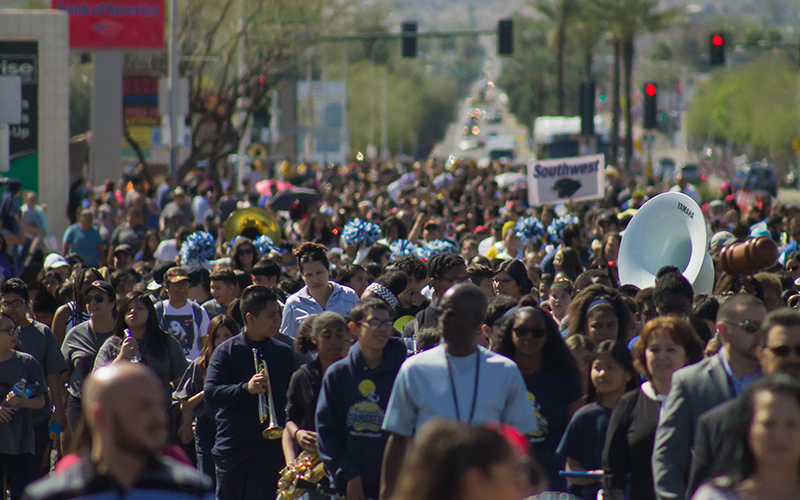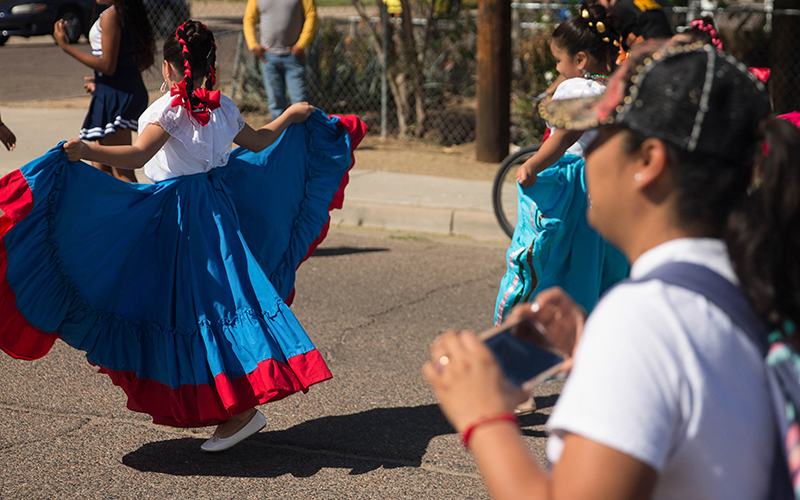PHOENIX – From bright bailable (Mexican folk dance) dresses to tall mariachi sombreros and vivid-colored zarapes (serapes), boys and girls from Cesar Chavez Leadership Academy in Phoenix stood beside a large mural of a man they’ve never met but know through countless stories.
Students, parents, staff members, and community leaders gathered at the academy on Thursday to honor the civil rights activist and labor organizer, but they also expressed outrage over a proposal by a Tea Party congressman to change the name of Cesar Chavez Day to Border Control Day.
In a tweet March 20, Rep. Louie Gohmert, R-Texas, said he has filed a resolution in the U.S. House to change the name because “Chavez spent his life addressing the harmful effects that illegal migration might have on this country and advocating for a legal immigration process.”
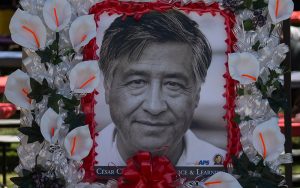
A portrait of Cesar Chavez hangs at the front of the Cesar Chavez Leadership Academy in Phoenix. (Photo by Miles Metke/Cronkite News)
Arizona House Minority Leader Rebecca Rios, D-Phoenix, who was present at the celebration, said Gohmert’s proposal is unnecessary and insulting.
“Today is a day to celebrate Cesar Chavez and his legacy, and for those folks that would like to rename the holiday, I would question their motivation, and I would say they’re manipulating history,” Rios said. “Today is a day that many Latinos are very proud to celebrate on behalf of Cesar Chavez, and we will fight to keep it Cesar Chavez Day.”
Sofia Miranda, an eighth-grader at the academy, also opposes the name switch.
“I wouldn’t support it because I think that the name he has in mind for Cesar Chavez Day, I think it has a negative connotation to it, because nobody wants to hear about borders,” she said. “It’s not about that. It’s about what he did.”
Principal Andrea Groeninger said the commemoration is an annual tradition at the school, taking place just days before Chavez’s birthday, March 31.
“It starts off with an assembly that is student-planned, student-run, student-executed, followed by a parade with all of our district schools, invited guests and dignitaries, and we end with a celebration and carnival for the day,” Groeninger said.
Participants paraded around the school for a mile, cheering, chanting and holding up handmade signs that displayed drawings of Chavez and such messages as “Si, se puede!” (Yes, we can!)
Miranda said that, as someone of Mexican heritage, Chavez is particularly important to her.
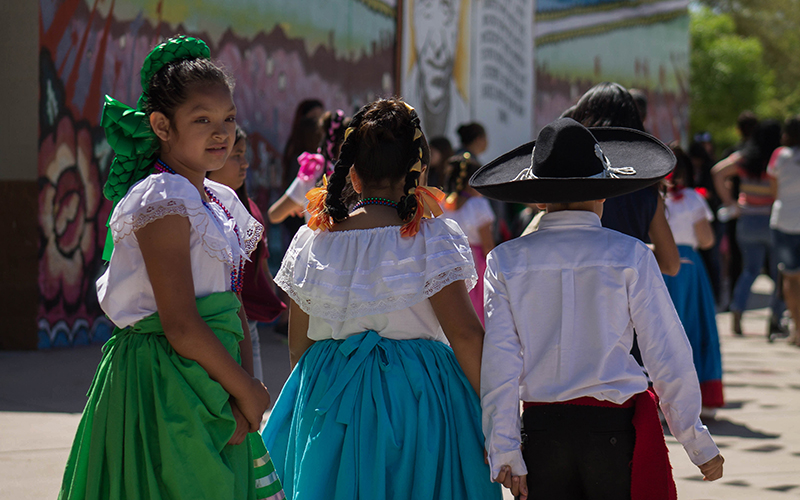
Students dressed in traditional Mexican attire attend the Cesar Chavez parade. (Photo by Miles Metke/Cronkite News)
“When I read stories about him and what he did, I think of what he did for the farmworkers. He fought for equality,” she said. “My family never had to work on the fields. But if my family were to, I would’ve wanted someone like him to be their voice, to stand up for them.”
Groeninger said when she thinks about Chavez and his legacy, she thinks about her students and their families.
“It’s a legacy of working for people who need a voice and being a voice of people who have often not had a voice she said. And he was successful at doing that and did it through nonviolence, did it through organization, did it through communication, and that is the legacy that we honor.”
Adopting the name Gohmert proposed would unjustly represent Chavez, Groeninger said.
“If we are calling something ‘Border Wall Day,’ we are not talking about unifying, and we’re not talking about bringing people together, we’re talking about doing the opposite of that,” she said.
“I think that that would change the meaning behind Cesar Chavez and his work.”
A vote on Gohmert’s resolution has not been scheduled.
